Sport, a male-dominated world since its inception, is taking steps towards gender equality, just as society is doing in much of Western world. But not across the board. The Olympic Games in Paris 2024 will be the first in which the same number of men and women compete. Visibility and economic parity on the pitch are also advancing, even if too slowly for many. But in the offices and board rooms where sport is actually run, the male majority is overwhelming. The glass ceiling there remains far too high and far too difficult to shatter, whether in organizations, professional leagues, international or national federations, clubs... or even in sports journalism. Only 20% of the journalists sent to cover the games in Tokyo were female.
One of the most recent studies to be published (Gender Balance in Global Sport Report, 2016) revealed that both in international federations and national Olympic committees, female representation was around 18%. In Spain, another recent study by ADESP (Spanish Sports Association) reported that only 3% of federation presidents are female along with a 35% presence on boards of directors. They have launched a mentoring program to try to correct the situation. The Spanish Sports Council has also established quotas in order to receive subsidies. Competing in the boardroom and offices can be far more difficult than on the field. But that's not to say there are not inspirational women who have already opened that door... here are just a few.

Jeanie Buss
The woman who brought the Lakers back to life
Jeanie Buss, the Lakers' Daenerys, has been working in sports management since the age of 19 (she is now 61). She grew up watching her father, Dr. Jerry Buss, build an empire (in 1979 he bought the Lakers, the NHL's Kings, and the Forum in Los Angeles for $67 million). She is the most influential woman in North American sports and one of the most powerful in the world. She was actively involved in winning six championship rings, the last of which was won as the owner of the Los Angeles franchise. After her father's death in 2013, Jeanie took control of the California franchise with her brother Jim. In the middle of the 2016-17 season, she staged a coup and removed her brother from power, tired of the chaos, toxicity, and poor results of the Lakers without direction.

It was none other than Kobe Bryant who talked about her role and how she was the perfect woman at the perfect time... with LeBron James the biggest prize: "When we talked about the decisions she had to make, I told her that at some point she had to embrace her role as Khaleesi, the Mother of Dragons. Claim what was rightfully hers and go for it." Kobe was one of those who saw Jeanie as the perfect person to inherit it all. So did her father, who gave her the final say in decisions just before he passed away. And that is evident in the DNA of a woman who lives for and loves the Lakers and has ended up doing what her father always wanted: keeping the essence of the Buss family and the essence of the Lakers alive.
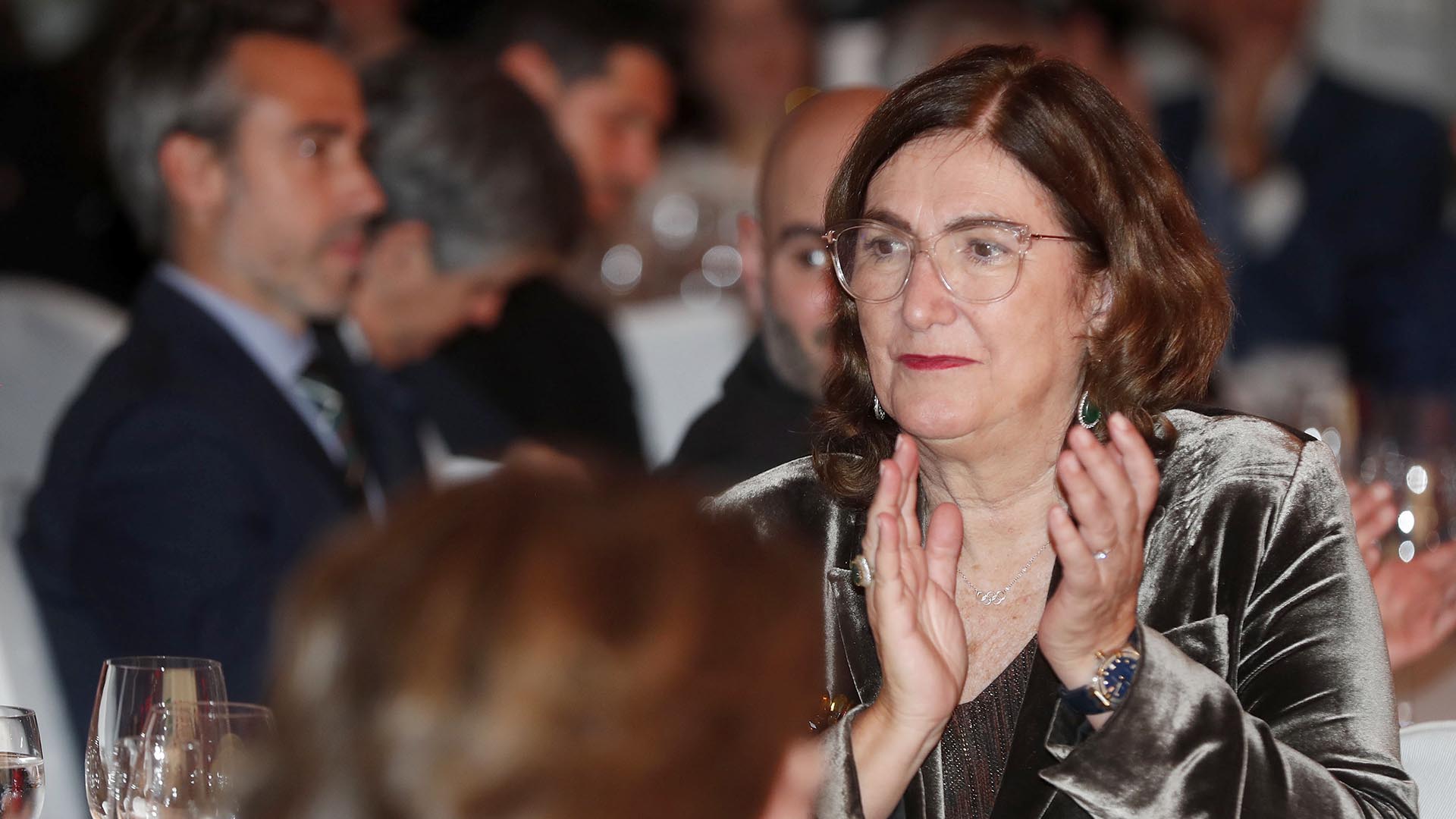
Marisol Casado
The "odd one out" in a world of suits
"The minority of women is too much a minority." With this forceful, definitive phrase, Marisol Casado (Madrid, 66 years old) sums up the presence of women in high-level positions in national and international federations. Until recently, she saw herself as "the odd one out" in a world dominated by men in suits, but she has been the president of World Triathlon since 2008, which allowed her to join the International Olympic Committee in 2010. For many years, she was the only female president of an international summer sports federation. Fortunately, others have recently followed her, such as Annika Sörenstam in golf and Petra Sörling in table tennis. However, the majority is still overwhelmingly male.
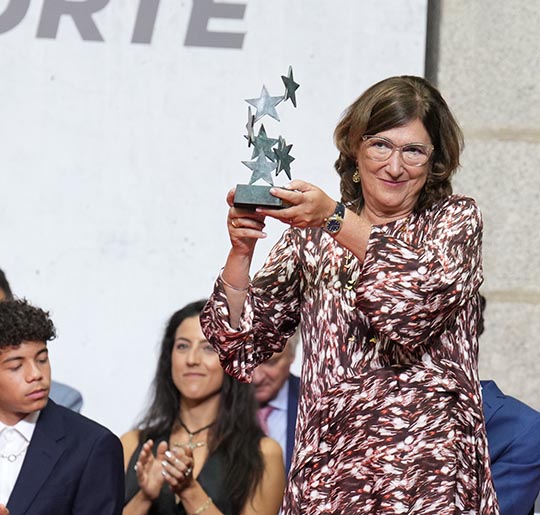
Casado, who was a triathlete before becoming president, believes that "there has been progress in women's participation in sports, and it is logical that the next step is leadership, because there is a large base of athletes who can fill leadership positions. I hope there will be a real breakthrough." The role of men will also be very important there. Casado knows this well. Her partner, Joaquín Ballesteros, was the president of the Triathlon Commission when the Spanish Federation was founded, and she was the secretary-general. "He told me that I had more skills and that two directors were too much for one family. He retired and gave me the opportunity to continue in the career. And that is exceptional," she recalls.
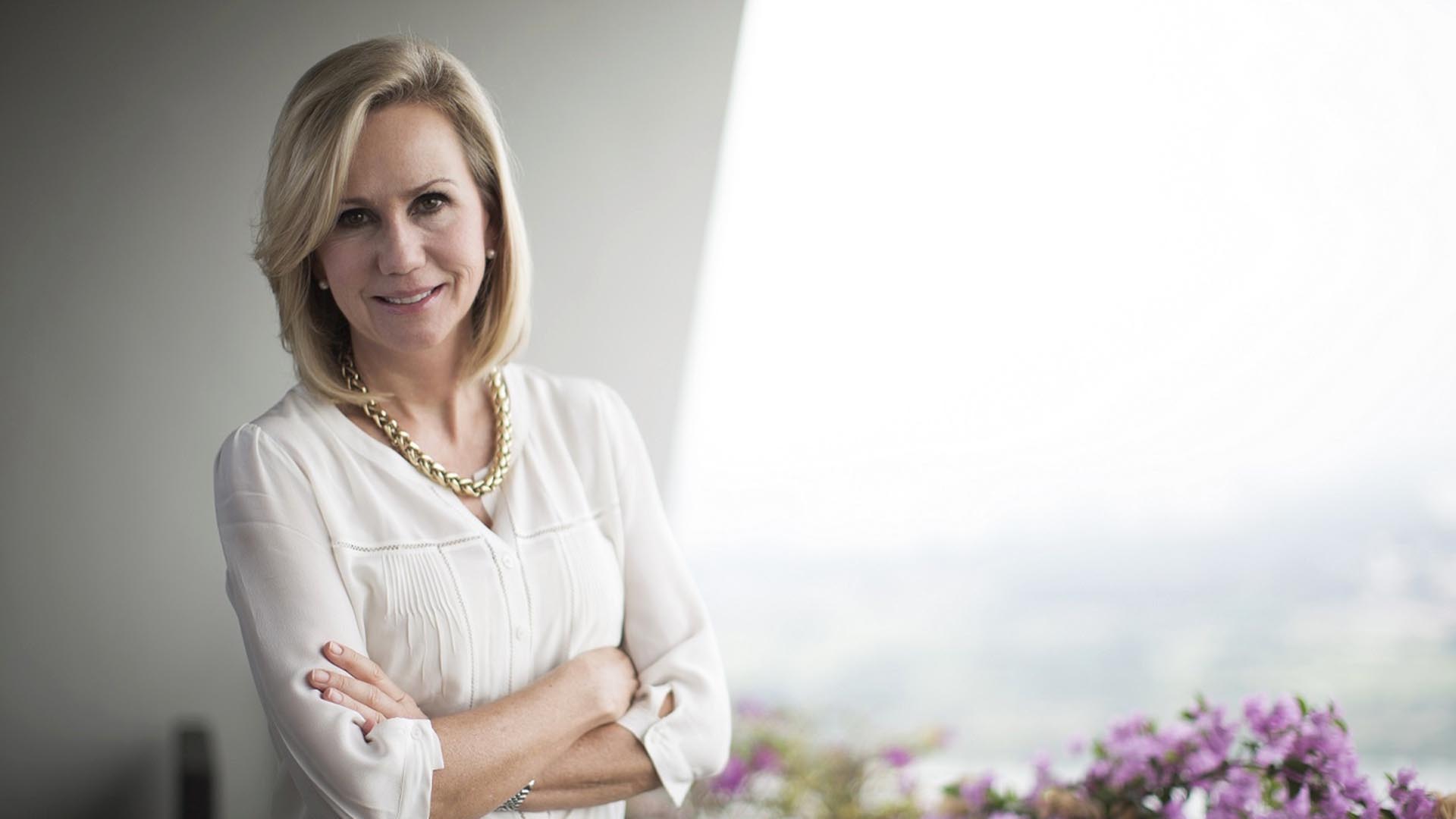
Micky Lawler
President of the WTA and a pioneering tennis agent
Micky Lawler (Eindhoven, 61 years old) is a pioneer in player representation and management in tennis, areas traditionally reserved for men. She began her career in 1986 as a communications liaison officer for the Men's Tennis Council, the predecessor of the ATP Tour. In 1988, she joined Advantage International, now Octagon, where she became the first female agent for tennis players inlcuding Alberto Mancini, Richard Krajicek, Paul Haarhuis, and Amelie Mauresmo. In 2015, she took over as president of the WTA, the Women's Tennis Association. As a certified interpreter and linguist, she speaks five languages: English, Dutch, French, German, and Spanish. And she has lived in South America, Central America, Europe, Africa, and the United States.

"I felt like I had won the lottery because I was 25 years old and traveling for 48 weeks a year, helping with the press for the tennis players. I had a close relationship with tournament directors, and that's where I started to learn about the tennis business," Lawler tells AS. She is also the architect of the WTA's expansion in China. "I went to 100 interviews, and they told me they preferred to hire a man because a woman my age was going to have children and want 'maternity vacations,' what an absurd concept," recalls Micky, who felt "a great responsibility" to pave the way for other women in representing athletes. Nowadays, she dreams of a united tennis. "The future is one organization."
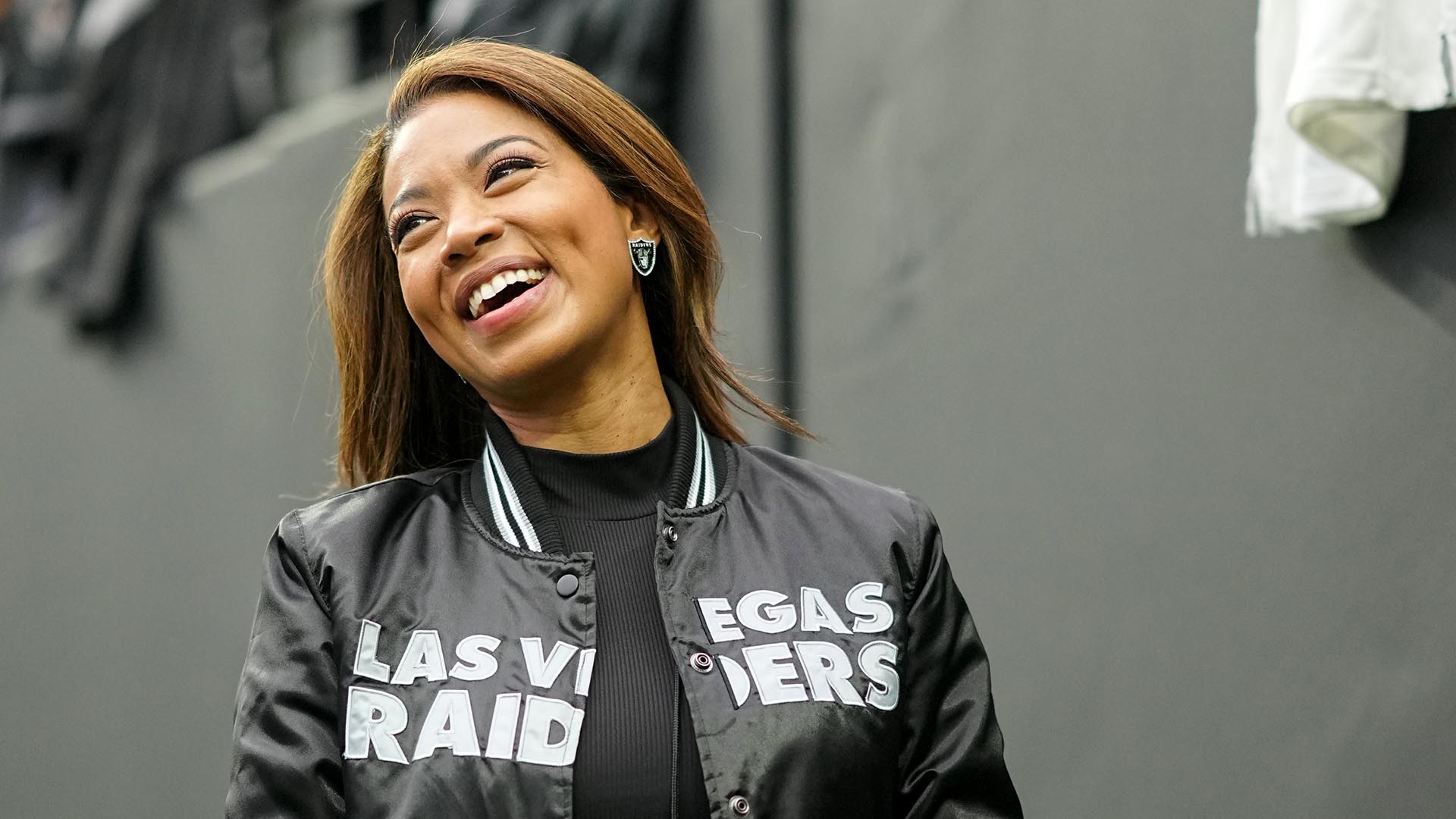
Sandra Douglass
The first Black female NFL president
Sandra Douglass Morgan made history in 2022 by becoming the first Black female president of an NFL franchise, the Las Vegas Raiders. "It's the honour of my life," she said upon being named. Born in Las Vegas to a Korean mother and American military father, Douglass Morgan graduated from the University of Nevada with a degree in law and went on to break several barriers in her career as a lawyer. She became the first Black person to serve as city attorney in Las Vegas and in 2019, became the first African American to lead the Nevada Gaming Control Board.
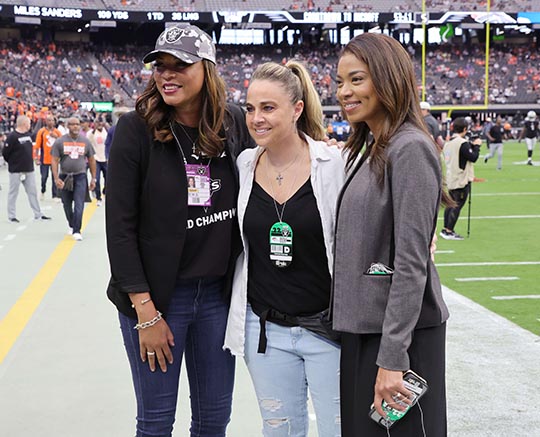
Before her appointment as president of the Raiders, only two women had led NFL teams, Kristi Coleman (Carolina Panthers) and Kim Pegula (Buffalo Bills). Douglass Morgan's appointment not only broke the gender barrier but also the racial barrier, as only two Black men had ever served as NFL team presidents. Mark Davis, the billionaire owner of the Raiders, selected Douglass Morgan to lead the team's ambitious project, and she has been able to bring calm to the franchise amidst a storm... while also making history.
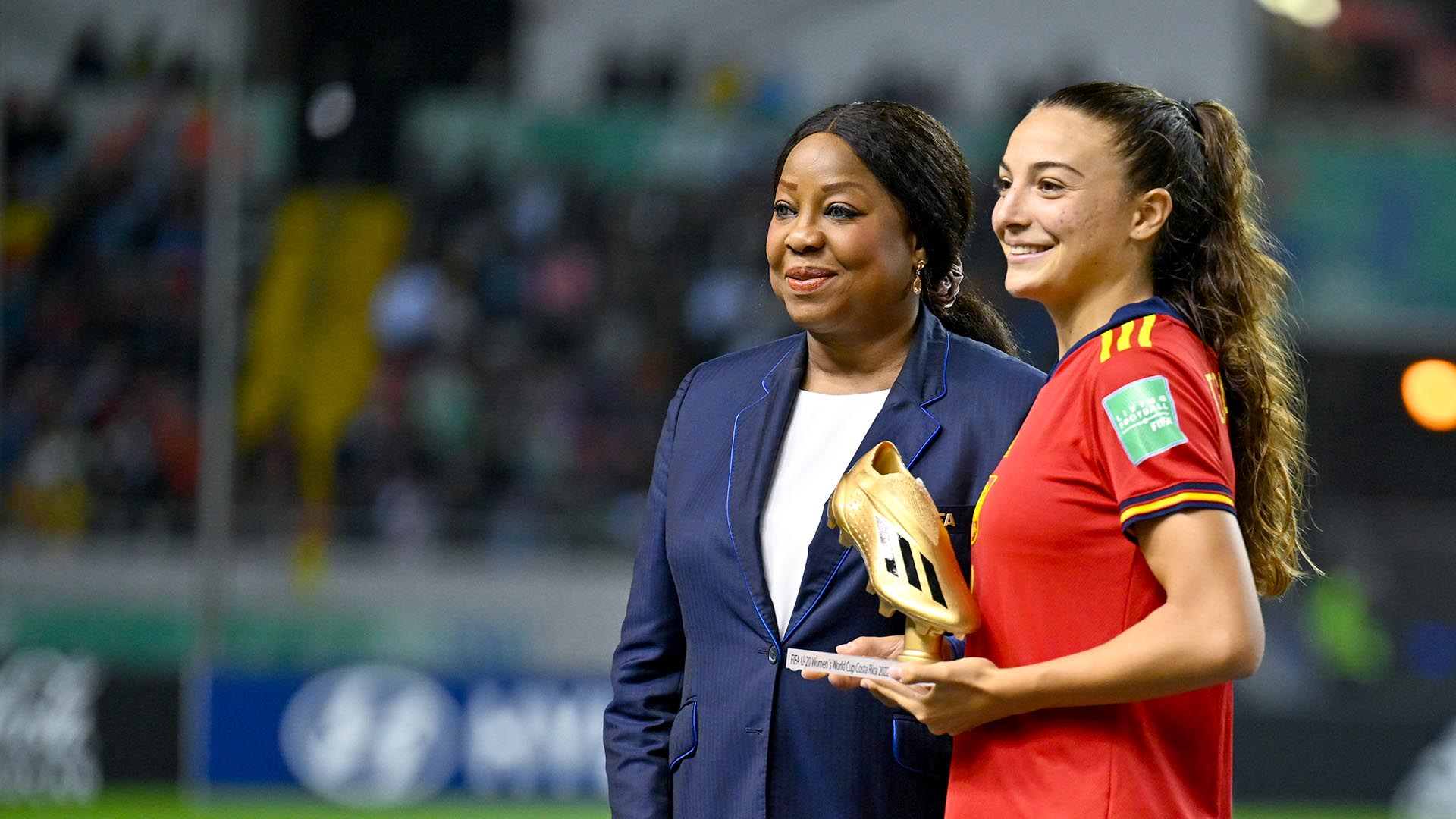
Fatma Samba Diouf Samoura
At the top of FIFA
Fatma Samba Diouf Samoura (1962, Senegal) became the first woman Secretary General of FIFA in 2016. The diplomat arrived after one of the darkest episodes in the history of the organization, following the corruption scandal involving her predecessor, Jerome Valcke. Fatma arrived to bring transparency in what was celebrated as a victory for feminism after decades of struggle. It was not easy. "Many people believe that a Black woman should not lead the FIFA administration," she said when she took her position, which she has held for seven years now. But she is already an authoritative voice within the organization: "I arrived at an organization dominated by men. Now they are used to me," she revealed.
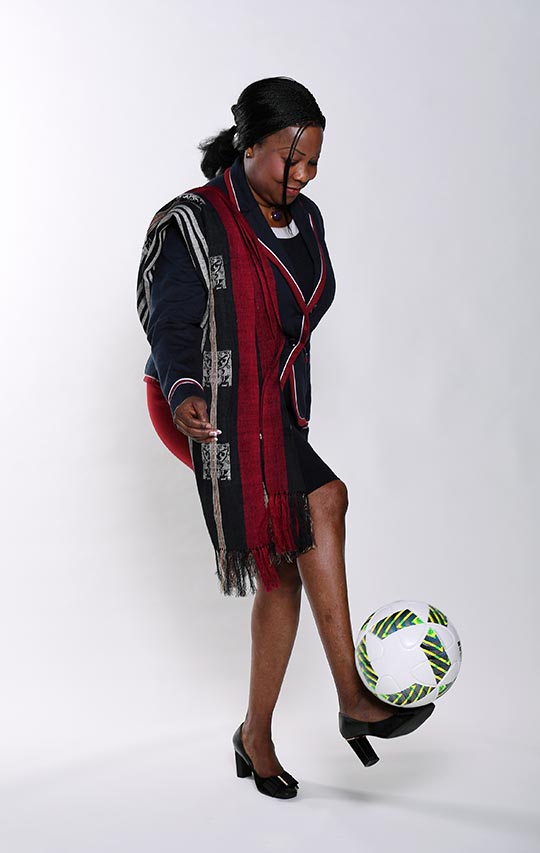
Holding a degree in Spanish and English from the University of Lyon, she studied international relations and international trade. Her career is admirable: she has carried out emergency work for the United Nations in Kosovo, Liberia, Nicaragua, Sierra Leone, and East Timor. She was also coordinator for five years of the UNDP (United Nations Development Program) in Madagascar and later in Nigeria. She spent 21 years in the United Nations as a humanitarian coordinator. "It is encouraging that every day there are more women in leadership positions. Time will tell whether I am an emblematic figure or not." Emblem and pioneer. An example that neither sex nor race is an impediment to success.
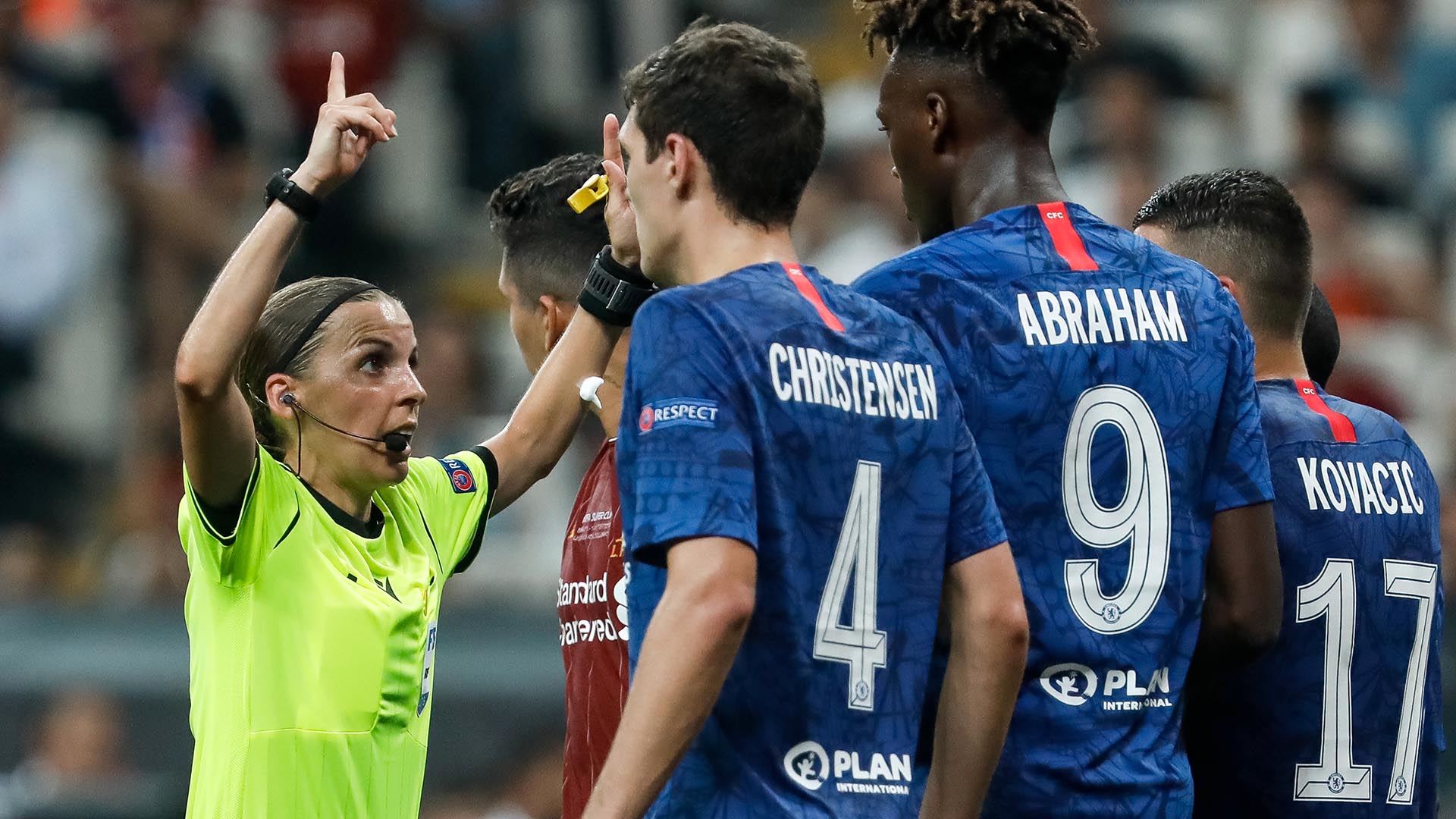
Stephanie Frappart
A refeering trailblazer
During the World Cup in Qatar, the eyes of the entire planet were focused on one woman in the middle of the pitch. As the male football tournament was taking place, Stephanie Frappart was making history as the first woman to referee a match at a World Cup. It took 22 editions and 92 years for the milestone to be achieved, and for what seemed like an insurmountable barrier to be broken. "When I found out, the emotion was enormous, I didn't expect it. I am very proud to represent France in the World Cup. I will have to control my emotions to focus on the game," said the Frenchwoman, who has been refereeing since she was 13.
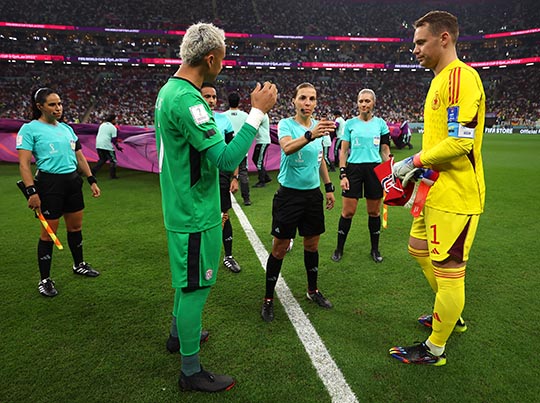
Frappart will go down in history as a pioneer. At 38 years old, she was the first woman to referee a match in Ligue 1, the Champions League (Real Madrid-Celtic), and the Euros. She also took charge of the UEFA Super Cup (Liverpool-Chelsea). Alas, she has faced some ugly incidents, with Marseille coach Villas-Boas criticizing her for Payet's dismissal after a penalty. "You don't have the level". He was not the only one. "It was a penalty, without a doubt, but the referee didn't see it. It's complicated when a woman referees in a men's sport," said Le Frapper of Valenciennes. Fortunately, things have changed, and it was no shock to see her sharing the stage with stars like Müller, Keylor, or Rüdiger on the Al Bayt pitch in Qatar. Frappart has broken down one more barrier.
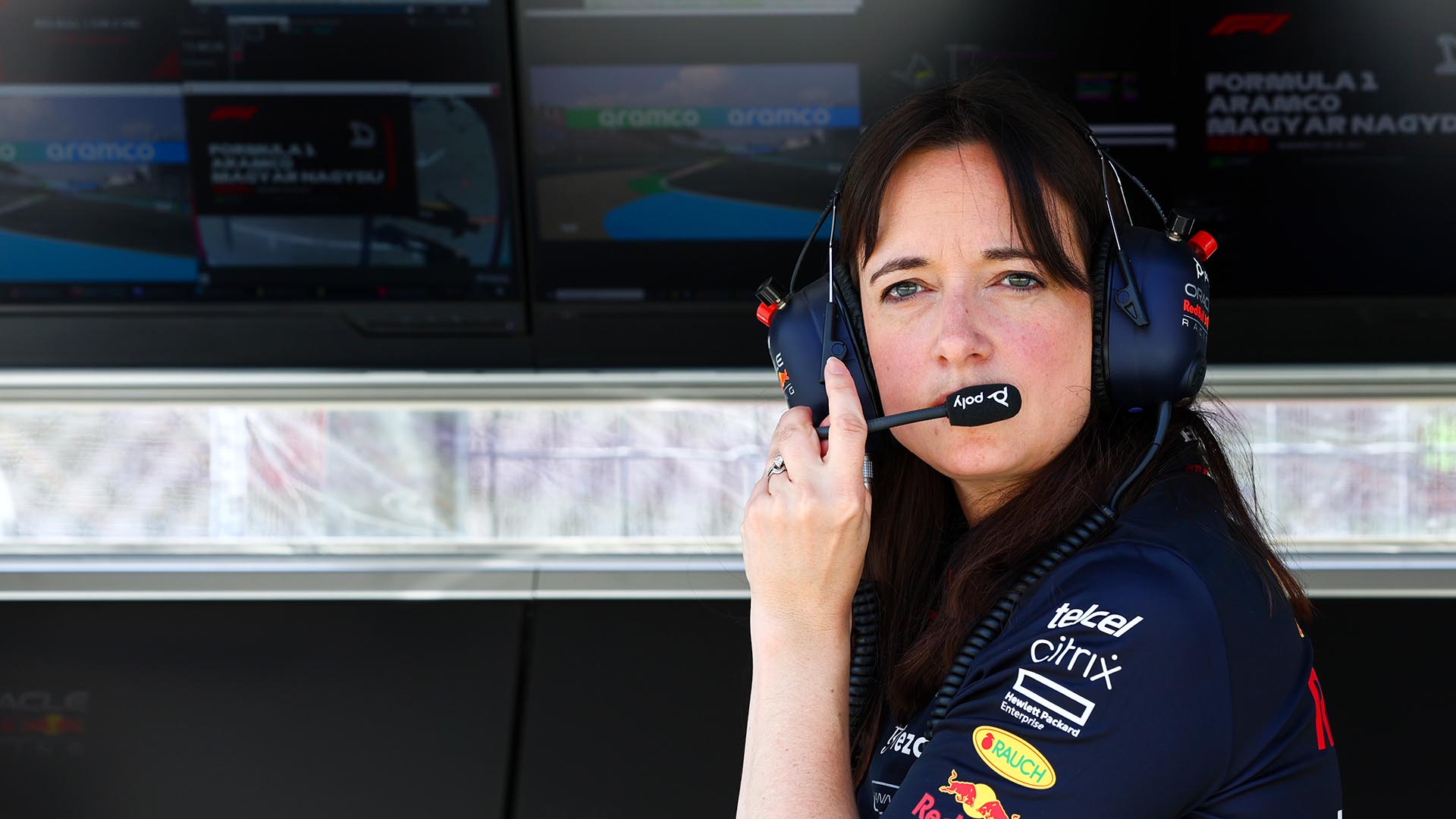
Hannah Schmitz
Red Bull's strategic boss
Motorsport is a team job, and Formula 1 is no exception. However, there are certain moments when the responsibility falls on the individual who has to make a critical decision in just a few seconds. Deep analysis of metrics and telemetry becomes frenetic when a safety car appears during the race or an unexpected variable comes into play, and someone has to take the initiative. Good strategy bosses make a vital difference, and in recent seasons, Red Bull has stood out thanks to intelligent decision making that have earned them victories or even titles, such as that historic end to the 2021 season in Abu Dhabi, where the trophy flipped from Hamilton to Verstappen during an unforgettable final lap.
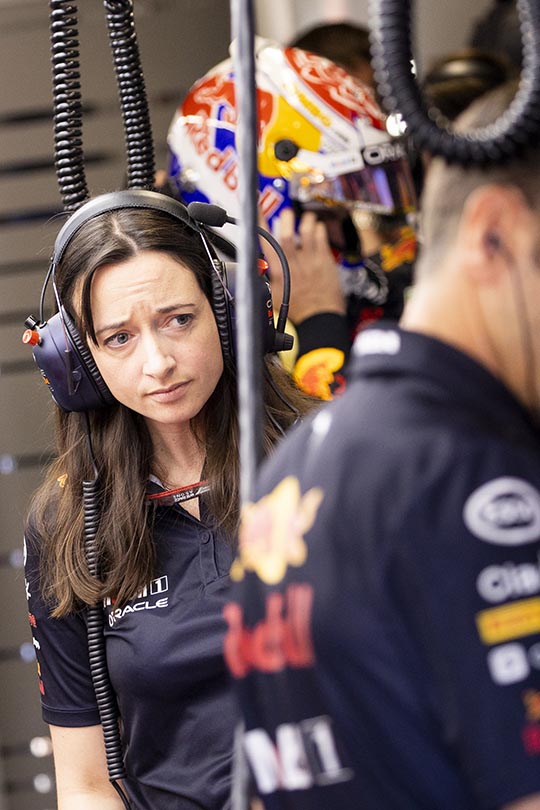
The strategic area of the Milton Keynes team is run by a woman, British engineer Hannah Schmitz (38 years old). A mechanical engineer who graduated from Cambridge, she has been with the team for 14 years. She has worked on the pit wall and in the factory control room, where she has access to all the radios and cameras of the 20 single-seaters. "You make the decision in a second and then you have about 20 seconds, which seem like an eternity during the race, until you see if the plan has worked. As a strategist, you have to tell a lot of people what to do, and they have to listen to you. You have to generate trust, and I think unfortunately, it's harder for a woman," she explains. She climbed onto the podium alongside Verstappen in Brazil in 2019 after devising a third pit stop that earned them the victory. Red Bull has gained countless points with each of her decisions.







